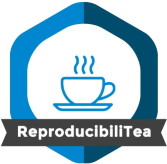In this post, Mike Dainton, Head of Scholarly Communications Services, brings us up-to-date on the Open Access landscape – an essential area of knowledge for anyone hoping to publish their research. For a basic introduction to Open Access, see the Library Services webpages.
The announcement of Plan S in 2018 heightened discussion about Open Access (OA) amongst research communities. A key tenet of Plan S is to cease using public money to publish OA in journals that also charge a subscription fee to libraries (so called ‘hybrid journals’).

It is acknowledged that flipping to Fully OA will take time, so an interim option for publishers is the ‘Transformative Agreement’ (TA). These should allow libraries to move spending from subscriptions to OA. Typically, an upfront fee provides read access and covers the cost of OA publishing, across a publisher’s complete journal portfolio. We’ve entered into many such agreements over the past year, significantly expanding options for all researchers, including PGRs, to publish OA. You can find further details here. Currently, Wellcome funded authors must abide by a Plan S aligned OA policy and a new UKRI (UK Research and Innovation) policy will come into force in April 2022.
Continue reading “The changing Open Access landscape”


 Effective project planning and delivery involves a wide range of skills and strategies which underpin a multitude of research activities. In research, projects can vary from small-scale activities (such as a pilot study or organising a research-related event) to very large-scale, multi-team endeavours (such as clinical trials). While smaller projects can be successfully delivered with ad hoc planning, larger projects require a more rigorous approach.
Effective project planning and delivery involves a wide range of skills and strategies which underpin a multitude of research activities. In research, projects can vary from small-scale activities (such as a pilot study or organising a research-related event) to very large-scale, multi-team endeavours (such as clinical trials). While smaller projects can be successfully delivered with ad hoc planning, larger projects require a more rigorous approach.  We all engage in risk management on a daily basis: when we look both ways before crossing the road, for example. We assess the risks and make changes accordingly: if we judge a road to be particularly fast/busy, we might walk a bit further to the pedestrian crossing. But risk management in research goes a lot further than health and safety.
We all engage in risk management on a daily basis: when we look both ways before crossing the road, for example. We assess the risks and make changes accordingly: if we judge a road to be particularly fast/busy, we might walk a bit further to the pedestrian crossing. But risk management in research goes a lot further than health and safety.  We’ve talked before on this blog about the value of proper
We’ve talked before on this blog about the value of proper 